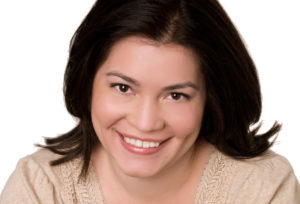Searching for Sycorax: Black Women’s Hauntings of Contemporary Horror by Kinitra D. Brooks
Rutgers University Press, 2017
ISBN-13: 978-0813584614
Available: Hardcover, paperback
In Searching for Sycorax, Kinitra Brooks argues that horror has excluded black women except as an “absent presence” (such as the witch Sycorax from Shakespeare’s The Tempest, who has shaped the characters through her prior actions but does not appear in the play) and must allow black women a space that historically they have not been granted. Brooks contends that black women characters in horror are constructed problematically to further the character development of other characters, especially white women, through an examination of the characters of Selena from 28 Days Later and Michonne from The Walking Dead. Brooks notes that much critical examination of horror is focused on the experiences of white men and their binaries (white women and black men). Black women, then, are unseen in a great deal of critical horror theory simply because they fall outside these binaries.
Brooks then examines how black feminist literary theorists, in their work to have black women writers included in the canon, have excluded genre fiction and authors (such as Octavia Butler) from critical examination, even though there are horror elements in many classic works of black women’s writing. While black feminist literary theorists have often chosen to examine black women’s writing through the lens of trauma theory or a magical realist framework, Brooks makes an argument for using a critical horror studies approach to black women’s literary works, carving out a place specifically for black women’s genre fiction which she calls “fluid fiction”, using it to explore the works of Nalo Hopkinson. Brooks defines fluid fiction as fiction by black women writers that blurs the boundaries of speculative genres and challenges mainstream genre limitations. It centers black women, reflects the intersections of their oppressions, and is grounded in African religious practices and folkloric elements.
Brooks then suggests that the flowing nature of black women’s fiction, music, and art, can be used to redefine the horror genre using the framework of “folkloric horror”. Folkloric horror highlights and centers traditional African religions, such as Vodou and Santeria, treating them with respect; includes an acceptance of spirit possession; focuses on a young woman’s spiritual journey and discovery of the self, under the guidance of elders; and celebrates the black spiritual feminine. Many works by black women writers (such as Toni Morrison’s Beloved and Gloria Naylor’s Mama Day) explore horror tropes such as ghosts and curses in the context of the folkloric horror framework.
I have seen a lot of people recently saying that anybody should be able to write from any point of view. Searching for Sycorax argues that black women have a unique view that until recently has not only been unappreciated but has actually been unseen, despite its influence on genre writing. As I’m currently reading a companion collection of short stories I will say that I am finding the stories of black women writers of horror that I have read overall are fresh, genuine, and original in a genre that often depends on tired tropes without challenging them. It is difficult for me to imagine someone else writing them. Since Brooks’ book was initially published there has been work done to make the horror genre more inclusive, but it’s necessary to move beyond the argument that quality work will naturally rise to the top, and make a specific effort to seek out and promote quality work by black women to both widen the audience for horror and bring it to the attention of members of the horror community who may not be aware of it.
This is an academic book and the writing reflects that. Also, because Brooks is wide-ranging in the texts she covers, including some titles that may be more familiar to people in the horror community and some that may be more familiar to black feminist literary critics and readers, it requires some patience and work to read it through and understand (it is not easy to read literary criticism even if you are familiar with the texts being discussed). It is worth the effort to read this, as a continued effort is made for the horror community to grow as an inclusive space. This is an original and thoughtful exploration of a topic that has received little attention; it is the only book I have been able to find that focuses critically on the work of black women writers of horror fiction, and belongs in the collection of any academic library, although I hope it will find a much wider audience. Very much recommended.







Follow Us!